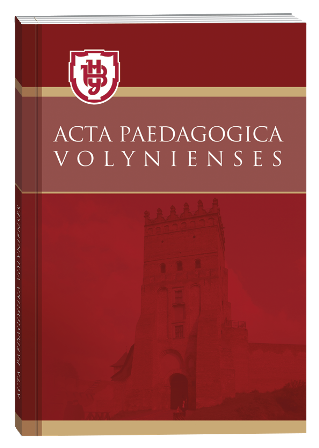ENGLISH AS A MEANS OF PROFESSIONAL COMMUNICATION IN AN ENGINEERING AND PEDAGOGICAL ENVIRONMENT: CHALLENGES AND OPPORTUNITIES
DOI:
https://doi.org/10.32782/apv/2025.1.26Keywords:
English language, professional communication, engineering and pedagogical environment, globalisation, international cooperation, engineering education, pedagogy, intercultural competence, critical thinking, analytical skills, technical terminology, language barrierAbstract
The article is devoted to the study of the importance of English as a key tool for professional communication in the modern engineering and pedagogical environment. In the context of globalisation and international integration, where scientific and technological progress and the exchange of knowledge are becoming transnational, English language skills are becoming an essential prerequisite for the successful professional activity of engineering and teaching staff.The article discusses in detail the role of English in providing access to the latest scientific publications, technical documentation, participation in international conferences, seminars and other forms of information exchange. It emphasises that English is the language of international communication in the field of science and technology, which makes its knowledge crucial for engineers and teachers who want to keep abreast of the latest achievements in science and technology.Particular attention is paid to analysing the importance of English for establishing international contacts, participating in joint research projects, and exchanging experiences and ideas with colleagues from different countries. The author stresses that English language skills help to broaden professional horizons, establish partnerships with foreign educational and research institutions, and open up opportunities for international academic mobility.The article also discusses the impact of learning English on the development of engineers’ and teachers’ cognitive skills, such as critical thinking, analytical skills, problem solving and generating new ideas. The author notes that English language skills contribute to the development of intercultural competence, which is an important factor for successful professional activity in a multicultural and multilingual world.The article also analyses the problems associated with the use of English in the engineering and educational environment, such as insufficient language skills, difficulties in understanding technical terminology, language barriers, etc. The article suggests ways to solve these problems, in particular by improving English language training programmes for engineering and pedagogical staff, using modern teaching methods, creating conditions for practising communication in English, etc.
References
Баландіна Н. В. Міжнародна мобільність як фактор підвищення якості освіти. Педагогіка вищої школи. 2012. № 1. С. 25–30.
Захарова Л. Глобалізація та міжкультурна комунікація. Харків : Видавництво НТУ «ХПІ», 2012.
Іванова О. Професійне спілкування: теоретичні аспекти та практика. Київ : Наукова думка, 2020.
Когут І. В. Англійська мова в системі професійної підготовки майбутніх інженерів. Вісник Національного університету «Львівська політехніка». 2015. № 812. С. 10–15.
Леонтьєв О. А. Іноземна мова в системі професійної освіти. Вища освіта України. 2010. № 3. С. 4–7.
Михайлова Т. Мовні норми професійного спілкування. Одеса : Фенікс, 2014.
Петренко В. Психолого-педагогічні особливості професійного спілкування інженерів-педагогів. Дніпро : ДНУ, 2019.
Сергієнко І. Психологічні аспекти вивчення іноземних мов. Київ : Либідь, 2012.
Anderson R. Public speaking in English. Cambridge : Cambridge University Press, 2015.
Brown P. International conferences in engineering education. Cham : Springer, 2019.
Clark M. Scientific and technical writing in English. Boston : Thomson, 2009.
Crystal D. The Cambridge encyclopedia of the English language. 3rd ed. Cambridge: Cambridge University Press, 2019.
Davis K. Communication in engineering. New York : McGraw-Hill, 2017.
Holmes J. An introduction to sociolinguistics. 4th ed. London : Routledge, 2013.
Jackson C. Negotiation skills in English. London : Palgrave Macmillan, 2012.
Lee D. Professional jargon in engineering. London : Routledge, 2010.
Mauranen A. Exploring discourse boundaries: A study of written academic discourse. Amsterdam : John Benjamins Publishing, 2006.
Moore B. Business writing in English. Oxford: Oxford University Press, 2013.
Smith J. English for engineering. Oxford: Oxford University Press, 2020.
Swales J. M. Genre analysis: English in academic and research settings. Cambridge : Cambridge University Press, 2004.
Taylor L. English for academic purposes. Harlow : Pearson, 2016.
Thomas S. Technical communication in English. Hoboken : Wiley, 2014.
Wilson M. Publishing scientific articles in English. Amsterdam : Elsevier, 2018.







